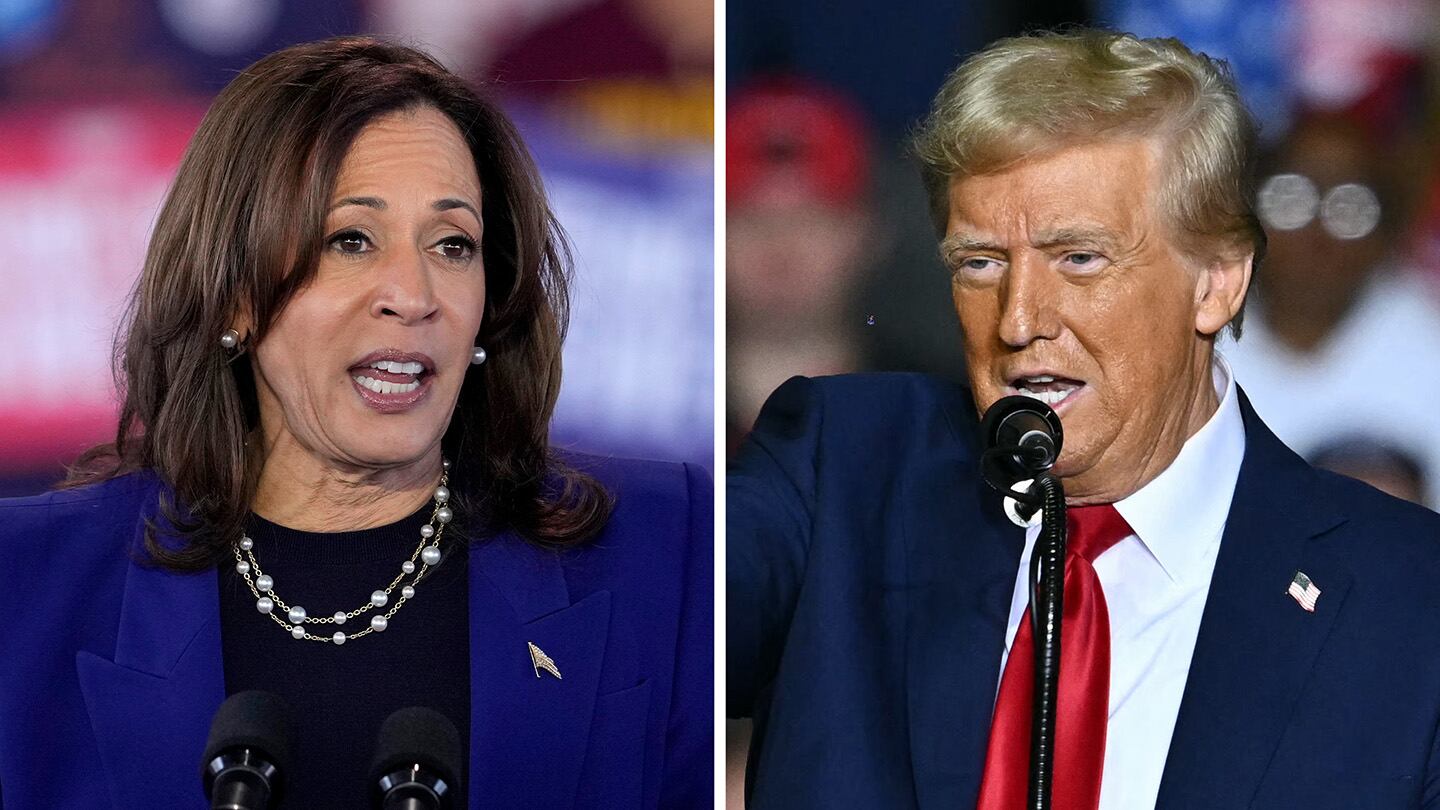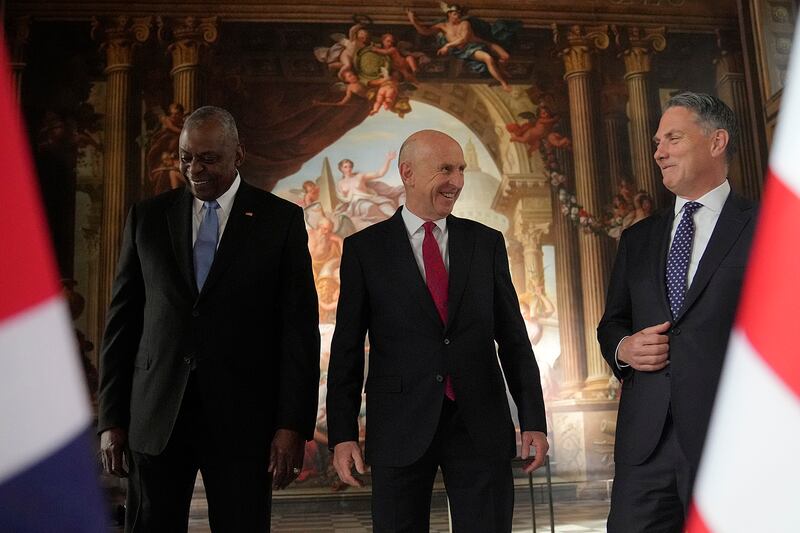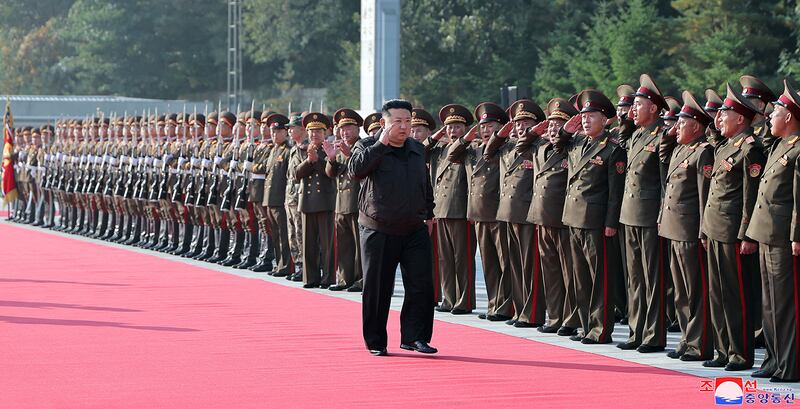
By Alex Willemyns
WASHINGTON – As the result of Tuesday’s U.S. presidential election teeters on a knife’s edge in a handful of evenly split swing states, the rest of the world is bracing itself for two starkly different potential futures.
One prospect is the return of former President Donald Trump’s turbulent “America First” foreign policy, which last time around downplayed any U.S. obligations as a world leader to prioritize transactional bilateral ties with countries like China, Russia and even North Korea.
On the other side of the ledger is the continuation, under Vice President Kamala Harris, of the last four years of President Joe Biden’s comparatively boring – if more predictable – style of alliance building and “steady” diplomacy in the face of multiple world crises.
While foreign policy is unlikely to sway many Americans’ choices at the ballot box – with domestic issues like the economy and the makeup of the Supreme Court outranking foreign policy in the eyes of voters – their choices will have the power to reshape global geopolitics.
As one columnist put it, the future of the world “may depend on what a few thousand Pennsylvania voters think about their grocery bills.”
So how would a Harris or Trump administration differ on Asia?

US alliances
Led by Kurt Campbell, who is currently the U.S. deputy secretary of state, the Biden administration has spent the past four years attempting to “manage” America’s rivalry with China by focusing on diplomacy with Beijing while building tight-knit alliances against it.
That includes the “AUKUS” pact with Australia and the United Kingdom, the “Quad” arrangement with Australia, Japan and India and the U.S.-Japanese-South Korean “trilateral,” even as U.S. diplomats have stopped short of supporting an “Asian NATO” aimed at China.
Harris has so far indicated she would take a similar approach, with Biden’s CIA director, Bill Burns, and one of the president’s top foreign policy “confidantes,” Sen. Chris Coons of Delaware, among the favorites to replace Antony Blinken as U.S. secretary of state.
She has even used high-profile speeches to make the point.
“I will stand with our friends, because I know that our alliances keep American people safe and make America stronger and more secure,” Harris said in her “closing argument” speech on Washington’s National Mall on Tuesday, exactly a week before the Nov. 5 election day.
“World leaders think that Donald Trump is an easy mark,” the vice president added, calling Trump “easy to manipulate with flattery and favor” and claiming that “autocrats” like Russian President Vladimir Putin and North Korean leader Kim Jong “are rooting for him” to win.
Trump, by contrast, has spent less time detailing an orderly approach to foreign policy to instead argue that world leaders respect him more than Biden or Harris and that a personal touch will be what matters.
Asked why Chinese President Xi Jinping would not invade Taiwan, for instance, the former president recently told The Wall Street Journal’s editorial board that Xi would be too afraid to carry out any invasion “because he respects me and he knows I’m f***ing crazy.”

Taiwan
Harris has repeatedly reaffirmed the “status quo” approach to Taiwan, a U.S. ally and self-governing democratic island that Beijing has called a “renegade” province that must one day be “reunited” with the mainland.
That decades-old position holds that China and Taiwan must negotiate their future peacefully – an increasingly unlikely scenario as the years go on – and that neither should attack each other in the meantime.
“Let me restate the point I’ve made many times,” Harris said on Oct. 16, after Chinese military drills near the island. “I believe in the ‘One China’ policy, and I believe … Taiwan has a right to defend itself.”
Trump, meanwhile, has offered contrasting hints about Taiwan.
While the former president has indicated he would discourage Xi against plans to invade the island, he has also attacked Taiwan’s leaders.
In a three-hour interview with podcaster Joe Rogan on Oct. 25, Trump repeatedly raised the island, at first drawing a link between Taiwan and Ukraine and noting that neither was invaded while he was president.
“It was almost the exact same conversation. I said, ‘Don’t do it,’” Trump said, referring to his conversations with both Xi and Putin.
However, in the closing portion of the interview, Trump attacked Taiwan’s so-called “Silicon Shield,” a term used to refer to the island’s near monopoly on advanced semiconductor-chip production, which has led to an intense U.S. interest in not letting the island be invaded.
“You know, Taiwan, they stole our chip business. Okay? They want us to protect [them] and they want protection. They don’t pay us money for the protection. You know, the mob makes you pay money, right?” he said, advocating for tariffs on all chips being imported into America.
The comments were seized upon by Zhu Fenglian, a spokesperson for China’s Taiwan Affairs Office, who gleefully told reporters it highlighted the untrustworthiness of America’s pledges to defend Taiwan.
“I believe most of our Taiwan compatriots have already made a rational judgment and know very clearly that what the United States pursues is always ‘America First,’” Zhu said at a press conference Wednesday. “Taiwan at any time may turn from a pawn to a discarded child.”

China and tariffs
One of the few times Harris and Trump went head-to-head on non-domestic issues during their debate on ABC News on Sept. 10 was in their opening spar over their proposals for tariffs on Chinese imports, due to the likely impacts on the American economy.
Trump has proposed tariffs of up to 60% on all imports from China, which Harris said would lead to surging inflation as Chinese exporters pass on the costs, tanking the American economy’s recovery. By contrast, Harris has called for fewer and more targeted tariffs.
However, Trump disputed any such analysis about inflation – including from sixteen Nobel Prize winning economists – to instead claim that Chinese exporters would absorb the added costs while paying “hundreds of billions of dollars” that could be used to cut taxes.
“They’re not going to have higher prices,” Trump said of consumers buying Chinese goods. “Who’s going to have higher prices is China, and all of the countries that have been ripping us off for years.”
Harris has voiced support instead for sticking with the Biden administration’s comparatively more targeted tariffs on China, which are focused instead on supporting U.S. industry in competing with China’s low-cost exports of solar panels and electric vehicles.
Beijing has repeatedly slammed both the proposals as protectionist and called for the United States to return to policies of free trade.
Nevertheless, trade with China may be one of the policy areas where Harris and Trump are aligned the closest in principle.
That is because American voters have come to see trade through the lens of “where we’re positioned geopolitically,” and not through its impacts on the costs of everyday goods, according to Laura Silver, an associate director of global attitudes at pollster Pew Research.
“They don’t necessarily see trade as lowering prices and benefiting them economically,” Silver said at a forum on the election hosted by the East-West Center. “China, in particular, is seen as a competitor, and so when it comes to trade with China, we are seen as losing.”
“This is a really salient thing in an election time,” she added.

North Korea
Trump’s former national security adviser, John Bolton, has said that North Korea’s recent deployment of troops to fight alongside Russia in its war in Ukraine could be a defining moment for the next president, with the budding alliance threatening regional and global security.
The prospect of Russia in turn supporting North Korea’s nuclear program “imperils South Korea, Japan and deployed U.S. forces in the region,” Bolton said in an op-ed for The Hill on Wednesday, warning of an anti-U.S. “axis” forming with China and Iran also involved.
Bolton also predicted that Trump might once again seek to befriend Kim while tossing aside U.S. assurances to Seoul and Tokyo.
While visiting Seoul as vice president in September 2022, Harris reiterated America’s “ironclad” support for its alliance with South Korea and Japan against North Korea. On the campaign trail, she has also pointedly vowed not to “cozy up” to world dictators like Kim.
For his part, Trump has done little to defuse the claims from Harris and Bolton that he is a potential target of “flattery and favor” from dictators like Kim, arguing in support of his personal touch in tense moments.
“I was with Kim Jong Un. I got along great with him,” Trump said on the Joe Rogan podcast, also recalling his “great relationship” with China’s Xi. “That’s a good thing. It’s not a bad thing. It’s a great thing.”
During the podcast, Trump recalled how he had goaded North Korea’s autocratic leader into believing the U.S. military was ready “to go to war” with him before parlaying nuclear threats into a friendship.
“He said, ‘I have a red button on my desk.’ I said, ‘I have a red button also, but mine’s bigger than yours and mine works,’” Trump told Rogan. “I said, ‘Do you ever do anything else? Why don’t you go take it easy and relax? Go to the beach. You have beautiful beaches.’”
“If you have a smart – really, the right president, the smart president – you’re not going to have a problem” with North Korea, he said.
Ja Ian Chong, an associate professor of political science at the National University of Singapore, said that the main takeaway was that Trump would place a great priority on personal relationships while Harris would likely maintain the Biden administration’s efforts at alliance building.
“That means an emphasis on the value of alliances and partnerships and working closely with them,” Chong told Radio Free Asia. “Trump has indicated far more skepticism toward alliances and partnerships since his previous term in office, with key exceptions such as Israel.”
“Trump seems largely consistent in his rhetoric,” he said, “which means a likely reconfiguration of U.S. alliances and partnerships.”
source : Radio Free Asia
